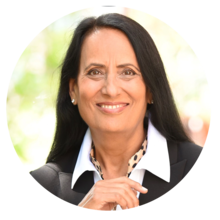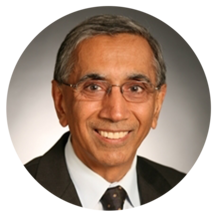About this Presentation
Since the Apics conference paper by Goldratt (1983), and the book The Goal (Goldratt & Cox, 1984, 1986, 1992), companies have attempted to implement the Theory Of Constraints (TOC) with various levels of success. Among practitioners it’s well known that a paradigm shift from cost accounting to throughput accounting is a prerequisite to long-term success of TOC implementations. This thesis research investigates this paradigm shift by using institutional theory. Institutional theory suggests that Institutions are the shared taken-for- granted assumptions which identify categories of human actors and their appropriate activities and relationships within the group (Burns & Scapens, 2000).
What Will You Learn
To help you get the most value from this session, we’ve highlighted a few key points. These takeaways capture the main ideas and practical insights from the presentation, making it easier for you to review, reflect, and apply what you’ve learned.

TOC implementations require a paradigm shift and are not well understood from an institutional perspective.
Institutional work by institutional entrepreneurship plays a significant role in the success of TOC implementations in management accounting.
The institutionalization of TOC in management accounting was accomplished by institutional entrepreneurs and subsidiary actors doing institutional work.
Instructor(s)
George Dekker
George Dekker is an experienced enterprise business architect & consultant at CGI. He holds various certifications in enterprise architecture, project management and continuous improvement. George has co-authored articles for sixsigmastudyguide.com and with Eli Schragenheim. George enjoys uncovering inherent simplicity from complex situations through applying TOC thinking processes and architecture. Structuring ambitions, surfacing assumptions and resolving conflicts in order to increase the potential velocity before embarking on, and during organizational change is a great privilege to him. In late 2020 he has completed his MSc in management at the Open University in the area of management accounting from the perspective of sociology. The thesis research formalized a curiosity about prerequisites for successful TOC implementation into a research direction and was greatly inspired and supported by the body of knowledge of TOC and TOCICO members.

Ms Alka Wadhwa
Alka Wadhwa is an experienced consultant and process improvement expert with over 24 years of expertise in the Theory of Constraints (TOC), Lean Six Sigma, and organizational performance optimization. She has successfully led projects in healthcare, financial services, and manufacturing, driving significant improvements such as a 67% boost in hospital operations and a 140% increase in outpatient visits.
Previously, Alka Wadhwa spent 17+ years at GE Global Research Center, where she led initiatives to enhance various GE businesses through advanced technologies, process redesign, and system optimization. Founder of Better Solutions Consulting, LLC, she specializes in using TOC, Six Sigma, and data analytics to streamline operations and build high-performance teams.
Her work has earned her multiple accolades, including the Empire State Award of Excellence in healthcare.

Dr Gary Wadhwa
Dr. Gary Wadhwa is a Board Certified Oral & Maxillofacial Surgeon with extensive experience in the field. He completed his Oral & Maxillofacial Surgery training at Montefiore Hospital, Albert Einstein College of Medicine in Bronx, NY, and has served as an Attending at prestigious institutions like St. Peters Hospitals, Ellis Hospital, and Beth Israel Hospital in NY. With a career spanning over two decades, he was the former CEO and President of a group specialty practice in NY from 1994 to 2015. Dr. Wadhwa holds an MBA from UT at Knoxville, TN, and has undergone additional training in System Dynamics at MIT, Health System Management at Harvard Business School, and Entrepreneurship and healthcare innovations at Columbia Business School. Committed to expanding access to Oral & Maxillofacial Surgery care, he is currently engaged in a meaningful project to provide healthcare services to underserved populations in inner city and rural areas through non-profit Community Health Centers.
